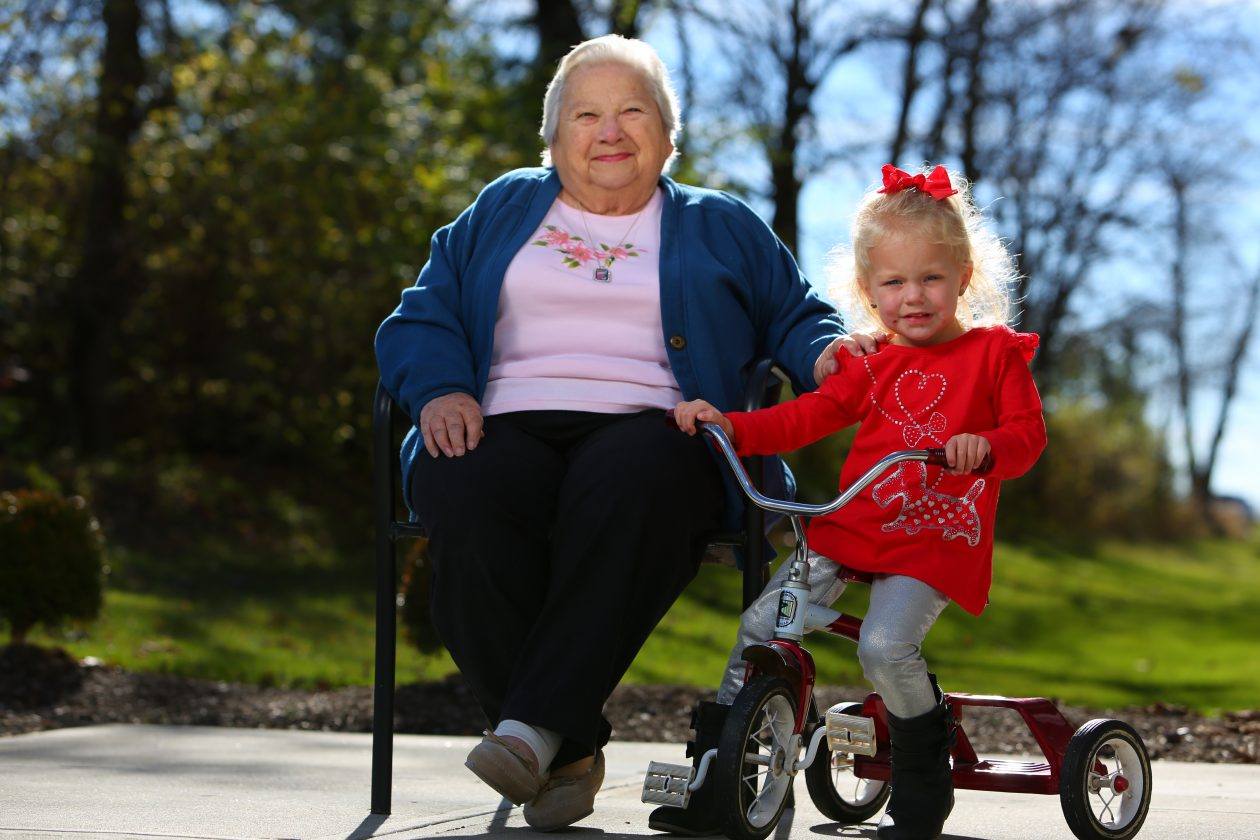April is Parkinson’s disease Awareness Month, and at Senior Lifestyle we’d like to take the opportunity to share information about the disease, its symptoms and treatments. According to the Parkinson’s Foundation, about a million people in the United States and roughly ten million people worldwide are afflicted with this diverse disorder which primarily affects dopamine-producing neurons in the substantia nigra area of the brain. The cause of Parkinson’s remains largely unknown.
While no two cases of Parkinson’s disease present exactly the same way, there are some similarities for each person affected by the disease. Symptoms tend to develop slowly, with many sufferers experiencing tremors, a slowing of movements, gait and balance problems and rigidness of their limbs. The progression of the symptoms varies widely from person to person due to the diversity of the disease, and while there is no cure for Parkinson’s disease, treatment options such as medication and surgery can help to manage symptoms. While these treatments neither slow nor halt the progression of the disease, they do improve quality of life for those suffering from Parkinson’s.
Although the movement-related (motor) symptoms of Parkinson’s disease are the most visible signs of the disorder, they are often less troubling than non-motor symptoms of the disease, which can include cognitive impairment, depression, constipation, sleep behavior disorders and loss of sense of smell.
While Parkinson’s disease presents differently in each affected individual, there are some warning signs that you may have the disease; you should speak with your primary care provider if you notice any of the following:
TREMOR
If you’ve noticed a slight shakiness or tremor in your finger, hand, thumb or chin, speak with your provider. Tremors that occur while at rest are early indicators of Parkinson’s disease.
LOSS OF SMELL
Are you no longer able to smell certain foods very well? If you are having trouble smelling foods like licorice, dill pickles or bananas, talk your doctor about Parkinson’s.
LIMITED MOBILITY
If you’re having trouble moving or walking due to stiffness in your arms, legs or body that doesn’t resolve with movement, it may be an early sign of Parkinson’s
TROUBLE SLEEPING
Sudden movements, along with thrashing around in bed during sound sleep can be indicators of Parkinson’s disease and should be addressed with your physician.
DIZZINESS OR FAINTING
If you feel dizzy or faint when rising from a chair, speak with your doctor. Feeling dizzy and faint can be a sign of low blood pressure and this can be linked to Parkinson’s disease.
If you or a loved one are facing a diagnosis of Parkinson’s disease, the best way to begin is to work with your primary care physician to develop a plan to help stay healthy. That plan may include:
- A referral to neurologist, a doctor who specializes in the brain
- Sessions with an occupational therapist, speech therapist or physical therapist
- An exercise program to help delay further symptoms of the disease
- Conversations with family members so that they can understand what kind of support you may need
- A visit with a medical social worker to help you understand the impact Parkinson’s may have on your life and the lives of your loved ones
At Senior Lifestyle, we understand how difficult it is to face a diagnosis of Parkinson’s disease, there is hope for living a purposeful, active and enjoyable life with proper disease management. If you are experiencing any of the symptom noted above, we encourage you to speak with your doctor about Parkinson’s disease. For more information about the care we provide to residents with Parkinson’s in our Senior Lifestyle communities, please visit our website at www.seniorlifestyle.com.

